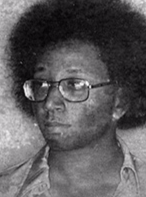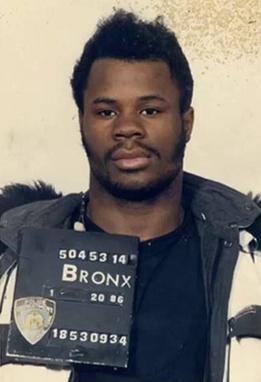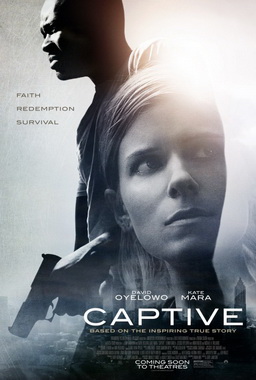
Wayne Bertram Williams is an American convicted murderer and suspected serial killer who is serving life imprisonment for the 1981 killings of two men in Atlanta, Georgia. Although never tried for the additional murders, he is also believed to be responsible for at least 24 of the 30 Atlanta murders of 1979–1981, also known as the Atlanta Child Murders.
On July 29, 1999, a shooting spree occurred at two Atlanta-area day trading firms, Momentum Securities and the All-Tech Investment Group. Nine people were killed, and 13 other people were injured. The gunman, identified as 44-year-old former day trader Mark Orrin Barton, later committed suicide in Acworth before he could be apprehended by police.

Leo Max Frank was an American factory superintendent and lynching victim. He was convicted in 1913 of the murder of a 13-year-old employee, Mary Phagan, in Atlanta, Georgia. Frank's trial, conviction, and unsuccessful appeals attracted national attention. His kidnapping from prison and lynching became the focus of social, regional, political, and racial concerns, particularly regarding antisemitism. Modern researchers generally agree that Frank was wrongly convicted.

Larry Davis, later known as Adam Abdul-Hakeem, was a man from New York City who gained notoriety in November 1986 for his shootout in the South Bronx with officers of the New York City Police Department, in which six officers were shot. Davis, asserting self-defense, was acquitted of all charges aside from illegal gun possession. Davis was later convicted in April 1991 of a Bronx drug dealer's 1986 murder. In 2008, Davis died via stabbing by a fellow inmate.

Kathryn Johnston was an elderly woman from Atlanta, Georgia who was killed by undercover police officers in her home on Neal Street in northwest Atlanta on November 21, 2006, where she had lived for 17 years. Three officers had entered her home in what was later described as a 'botched' drug raid. Officers cut off burglar bars and broke down her door using a no-knock warrant. Police said Johnston fired at them and they fired in response; she fired one shot out the door over the officers' heads and they fired 39 shots, five or six of which hit her. None of the officers were injured by her gunfire, but Johnston was killed by the officers. Police injuries were later attributed to friendly fire from each other's weapons.

Nancy Ann Grace is an American legal commentator and television journalist. She hosted Nancy Grace, a nightly celebrity news and current affairs show on HLN, from 2005 to 2016, and Court TV's Closing Arguments from 1996 to 2007. She also co-wrote the book Objection!: How High-Priced Defense Attorneys, Celebrity Defendants, and a 24/7 Media Have Hijacked Our Criminal Justice System. Grace was also the arbiter of Swift Justice with Nancy Grace in the syndicated courtroom reality show's first season.

Troy Anthony Davis was a man convicted of and executed for the August 19, 1989 murder of police officer Mark MacPhail in Savannah, Georgia. MacPhail was working as a security guard at a Burger King restaurant and was intervening to defend a man being assaulted in a nearby parking lot when he was murdered. During Davis's 1991 trial, seven witnesses testified they had seen Davis shoot MacPhail, and two others testified Davis had confessed the murder to them. There were 34 witnesses who testified for the prosecution, and six others for the defense, including Davis. Although the murder weapon was not recovered, ballistic evidence presented at trial linked bullets recovered at or near the scene to those at another shooting in which Davis was also charged. He was convicted of murder and various lesser charges, including the earlier shooting, and was sentenced to death in August 1991.

Opened in 1969, Georgia Diagnostic and Classification Prison (GDCP) is a Georgia Department of Corrections prison for men in unincorporated Butts County, Georgia, near Jackson. The prison holds the state execution chamber. The execution equipment was moved to the prison in June 1980, with the first execution in the facility occurring on December 15, 1983. The prison houses the male death row, while female death row inmates reside in Arrendale State Prison.

The Fulton County Courthouse, built between 1911 and 1914, is an historic courthouse building located at 136 Pryor Street SW in Atlanta, seat of Fulton County, Georgia. It was designed by noted Atlanta-based architect A. Ten Eyck Brown (1878–1940), along with the Atlanta firm of Morgan & Dillon. It replaced an earlier building that had been designed by architect William H. Parkins. It is officially the Lewis R. Slaton Courthouse.
The Marin County Civic Center attacks were two related attacks in 1970 at the Marin County Civic Center courtroom in San Rafael, California, United States, tied to escalating racial tensions in the state's criminal justice system.

In Forsyth County, Georgia, in September 1912, two separate alleged attacks on white women in the Cumming area resulted in black men being accused as suspects. First, a white woman reportedly awoke to find a black man in her bedroom; then days later, a white teenage girl was beaten and raped, later dying of her injuries.
State of Florida v. George Zimmerman was a criminal prosecution of George Zimmerman on the charge of second-degree murder stemming from the killing of Trayvon Martin on February 26, 2012.

Captive is a 2015 American crime-drama thriller film directed by Jerry Jameson and written by Brian Bird and Reinhard Denke, based on the non-fiction book Unlikely Angel by Ashley Smith.
The shooting of Anthony Hill, a U.S. Air Force veteran, occurred on March 9, 2015, in Chamblee, Georgia, near Atlanta. Hill, fatally shot by police officer Robert Olsen, suffered from mental illness and was naked and unarmed at the time of the incident. The incident was covered in local and national press and sparked the involvement of Black Lives Matter and other advocacy groups who demonstrated their anger at the shooting. In January 2016, a grand jury indicted officer Olsen on two counts of felony murder and one count of aggravated assault. Nearing the fourth anniversary of the homicide, it was decided that Olsen's trial would be rescheduled for September 23, 2019, with delays including three successive judges having recused themselves in the case.

Cooper Harris was a 22-month-old toddler who died of hyperthermia on June 18, 2014, in Vinings, Georgia. His father, Justin Ross Harris ("Ross"), had left him strapped in the rear-facing car seat of his SUV, where the toddler remained for approximately seven hours. Ross was arrested and charged with his son's death, which he called a tragic accident. After a jury trial that garnered national media attention, he was found guilty of malice murder and felony murder, among other charges, on November 14, 2016. He was sentenced to life in prison without the possibility of parole plus 32 years. In 2021, the Harris case was the subject of a documentary, Fatal Distraction.

The lynching of Paul Reed and Will Cato occurred in Statesboro, Georgia on August 16, 1904. Five members of a white farm family, the Hodges, had been murdered and their house burned to hide the crime. Paul Reed and Will Cato, who were African-American, were tried and convicted for the murders. Despite militia having been brought in from Savannah to protect them, the two men were taken by a mob from the courthouse immediately after their trials, chained to a tree stump, and burned. In the immediate aftermath, four more African-Americans were shot, three of them dying, and others were flogged.
Danny Lewis Hansford was an American shooting victim who was killed by his employer, historic preservationist and antiques dealer Jim Williams, at Williams' home in Savannah, Georgia, United States. His death was recounted in John Berendt's 1994 non-fiction book Midnight in the Garden of Good and Evil and its 1997 film adaptation. After four trials, Williams was acquitted of Hansford's murder.

On February 23, 2020, Ahmaud Arbery, a 25-year-old black man, was murdered during a racially motivated hate crime while jogging in Satilla Shores, a neighborhood near Brunswick in Glynn County, Georgia. Three white men, who later claimed to police that they assumed he was a burglar, pursued Arbery in their trucks for several minutes, using the vehicles to block his path as he tried to run away. Two of the men, Travis McMichael and his father, Gregory McMichael, were armed in one vehicle. Their neighbor, William "Roddie" Bryan, was in another vehicle. After overtaking Arbery, Travis McMichael exited his truck, pointing his weapon at Arbery. Arbery approached McMichael and a physical altercation ensued, resulting in McMichael fatally shooting Arbery. Bryan recorded this confrontation and Arbery's murder on his cell phone.

Fani Taifa Willis is an American attorney. She is the district attorney of Fulton County, Georgia, which contains most of Atlanta, serving since 2021. She is the first woman to hold the office. Willis investigated the 2020 presidential election in Georgia, which resulted in indictments against Donald Trump and 18 alleged co-conspirators on charges of racketeering and other crimes.

In February 2021, Fulton County, Georgia, district attorney Fani Willis launched a criminal investigation into alleged efforts by then-president Donald Trump and his allies to overturn the certified 2020 election victory of Democratic candidate Joe Biden and award the state's electoral college votes to Trump. A special grand jury recommended indictments in January 2023, followed by a grand jury that indicted Trump and 18 allies in August 2023. The charges include conspiracy, racketeering and other felonies.















